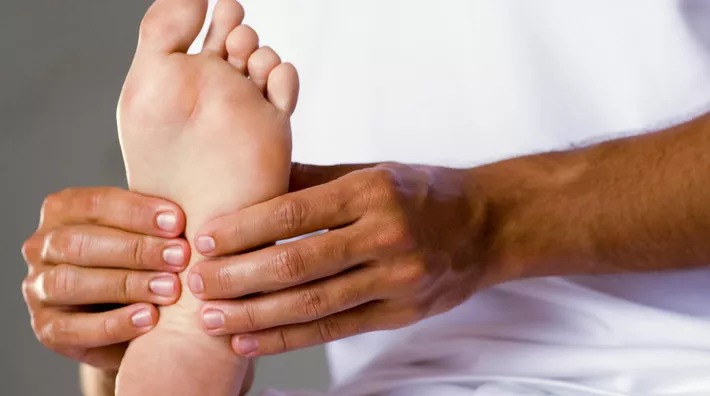
Diabetes-UK funded researchers have developed a new method to assess the health of bones in Charcot foot, a serious complication of diabetes, which could help healthcare professionals to better protect foot health in people with diabetes.
One of the common complications of diabetes is neuropathy, where high blood sugars cause damage to the nerves. Neuropathy in the feet can result in a loss of feeling, so damage to the bones can go unnoticed. This can cause the bones in the foot to change shape. This is called Charcot foot. Left untreated, Charcot foot can cause further fractures to the bones, and even lead to amputation.
Diabetes UK-funded researcher Dr Nina Petrova and her team at King’s College London have been studying new treatments to help improve the healing process for Charcot foot. Currently, the best treatment for the condition involves a full cast below the knee to stop the foot from moving and allow it to heal. But this process can take several months and has a heavy impact on quality of life for people living with diabetes.
Dr Petrova and her team looked to see if a protein called parathyroid hormone (PTH) could help. PTH has been linked to fracture healing in animals, and it’s thought it could play a role in speeding up the bone healing process in humans. The researchers took 48 volunteers who all had type 2 diabetes and Charcot foot, and either gave them a PTH or a placebo (dummy) treatment. They then followed the participants to see how long it took for their Charcot foot to heal.
The researchers found that, on average, people who had been given the PTH therapy had a healed foot in five months, but those who had received the placebo took six months to heal. Unfortunately, this difference in healing time was not considered big enough for the researchers to conclude that PTH was more effective than the placebo treatment.
During the study, the researchers needed a way to measure how the feet of participants were healing. Using MRI scans of the foot, they were able to develop a new scoring system, that measured swelling in bone marrow and fractures to accurately assess the health of the foot. They hope that this new method will be used by healthcare professionals to better understand how Charcot foot is progressing, and help make sure it heals properly.
Dr Elizabeth Robertson is Director of Research at Diabetes UK. She said:
“Charcot foot is a serious complication of diabetes that can be difficult to diagnose, treat and manage. This new tool for scoring Charcot foot health will help make sure the people with diabetes get the best care they need to heal well and avoid amputation. We hope that, in the future, further research will find new treatments to reduce the impact of Charcot foot on people living with diabetes.”
